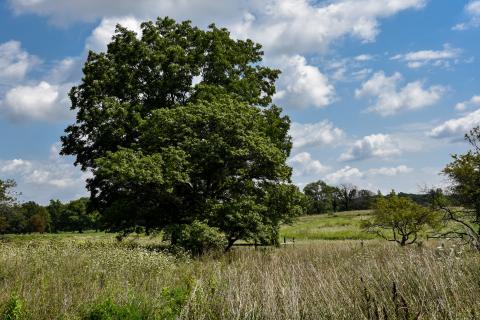
When I arrived years ago at the piece of land I now garden, I saw it as a blank canvas and set about madly planting things, imagining my efforts would bring every square foot to life. I did not understand then that the heavy lifting had already been done — and probably by some blue jay, or maybe a squirrel.
Douglas W. Tallamy, an entomologist and longtime professor at the University of Delaware, would have known right away what the giant old oak trees along the front property line meant to the place — and to any place.
“There is much going on in your yard that would not be going on if you did not have one or more oak trees gracing your piece of planet earth,” he writes in his new book, “The Nature of Oaks: The Rich Ecology of Our Most Essential Native Trees.”
Oaks support more life-forms than any other North American tree genus, providing food, protection or both for birds to bears, as well as countless insects and spiders, among the enormous diversity of species. Oaks also supply more of what he calls “fascinating interactions,” intimate details the book chronicles, month by month.
It was caterpillars — especially the larval stage of moths — that Mr. Tallamy credits with alerting him to the power of the genus Quercus. With 90-plus North American species and about 435 worldwide, Quercus is the Northern Hemisphere’s largest tree genus, made up mostly of trees that are very large and very long-lived, two factors among several that help explain the oak’s power.

